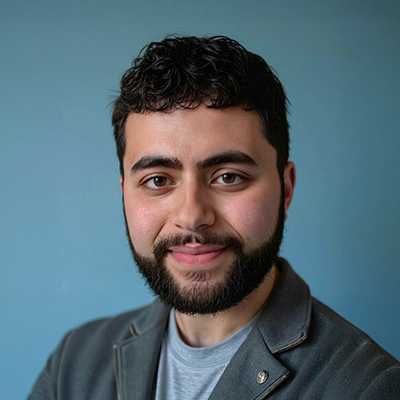
Lukeman Kharrat
Program: Master’s Program in Bioinformatics & Medical Informatics
Date: Tuesday, October 29, 2024
Time: 3:00 PM
Location: BioScience Center Gold Auditorium
Zoom: https://SDSU.zoom.us/j/86851506658
Committee Members
- Dr. Dwayne Roach, Chair (Biology)
- Dr. Jeet Sukumaran (Biology)
- Dr. Parag Katira (Mechanical Engineering)
Abstract
Currently, the development and clinical use of virulent dsDNA bacteriophages, known as phage therapy, is rapidly increasing, offering promising therapeutic benefits for managing various bacterial infections. However, concerns are also growing regarding adverse effects, such as phage immunogenicity that can manifest through anti-phage antibody production and hypersensitivity reactions.
These immune responses pose a substantial challenge to the continued use of phage therapy in various disease settings. Efforts to identify factors contributing to these immunogenic reactions have led to reduced incidences of immunogenicity with biologics, yet an in-depth understanding of the cellular and molecular mechanisms involved remains crucial for improving the safety profile of phage-based therapeutics.
In this work, I explore the mechanisms by which host immune cells recognize phages, with a particular focus on CpG-DNA as a critical antigen. Specifically, I investigate the role of Toll-like receptor 9 (TLR9) in shaping immune responses to phage DNA and examine how phage-derived antigens are presented across diverse phage types, providing insights into how different phage backgrounds influence immune recognition. My findings highlight that CpG frequency and distribution are conserved in phage genomes and play a critical role in the interaction between the microbiota and innate immune cells.
The analysis of specific CpG motifs indicates that phages may have the potential to either activate or evade TLR9-mediated immune responses depending on these patterns. Additionally, RNAseq analysis of a therapeutic candidate phage reveals that phage DNA, enriched with CpG motifs, has the potential to activate immune pathways specifically linked to Toll-like receptor engagement and activity. These insights could guide the design of safer phage therapies, minimizing adverse immune responses and improving clinical outcomes for patients undergoing phage therapy.

